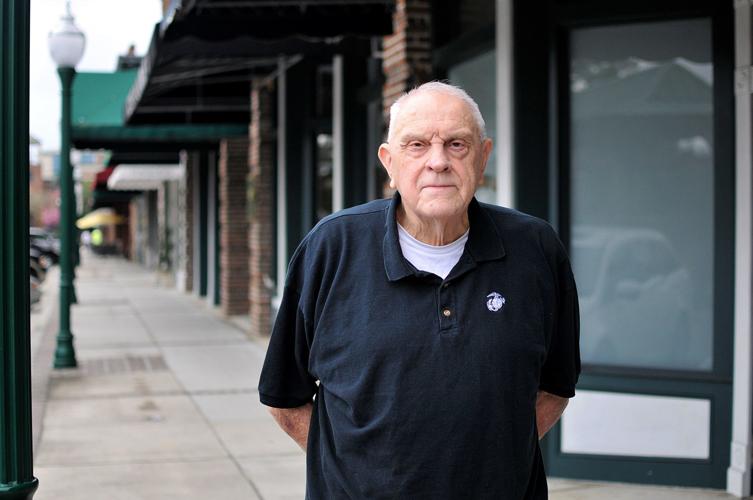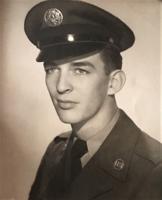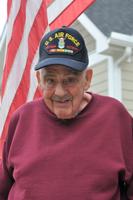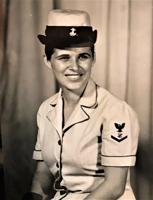It was the Hollywood screen and America’s favorite gun-slinging actor of the 1940s that first ingrained a love for the Marines into young Clifton Jones. Watching battles on the big screen intrigued him.
“I’d always wanted to be a Marine because I saw scenes of ‘(Sands of) Iwo Jima’ with John Wayne,” he said.
But it was really the “swagger” of the dress blues that caught his eye.
“I always liked the blue trouser with the red stripe,” he said.
Because many of his relatives had served in the military, they weren’t surprised when Jones, at nearly 20, also signed up; but they did question his branch of choice.
“I come from a military family,” Jones said. “Most of my aunts and uncles were Army. They all served in World War I and Word War II. They were patriotic. … I was the only Marine in my entire family so I was kind of an outcast.”
His father—a Navy veteran—was most shocked.
“My dad was upset…sometimes Marines and sailors don’t get along,” Jones said with a laugh.
With most of his friends drafted and limited job opportunities available in his hometown of Montezuma, Jones felt the military could provide him more options. However, he didn’t enlist until first attending nearly two years on a basketball scholarship — the “state’s leading rebounder,” he boasted — for Young Harris College in northern Georgia.
“I was the state’s leading rebounder,” Jones said.
Jones received his first taste of the Marines immediately upon arriving at basic training in Parris Island. His superiors wasted no time helping young recruits acclimate to their new lifestyle. As his bus neared the base entrance, Jones said it was near midnight and the first drill instructor to address the group left a lasting impression.
“He must have seemed like 6-foot-8…and he had a voice you could hear eight miles away,” Jones said. “At that point, I wanted to go home. The guy next to me was crying. They’re trying to break down your civilian habits where you feel like you’re part of a team. You don’t understand that at first but as time goes by you begin to understand that.”
Thankfully, because of his athletic build, the physicality of his Marine training was less a shock to him than the mental strain.
“The discipline part didn’t bother me that much, but it was the constant stress of being away from home that I think bothered me the most,” Jones said. “I was just a country boy from South Georgia.”
After basic, Jones attended “warrior training”—which is now rolled into the Marine Corps basic training—at Camp Lejeune in North Carolina, and afterward assigned a critical MOS—“military occupational specialty”—in communications. The expectation was for him to prep for an overseas assignment related to the Berlin Crisis, but he said it ended without him having to go. Under his specialty role, Jones completed unique task with radio and wire training.
“We’d have to climb trees or pull reels in the woods in combat zones,” he said. “You can’t have combat without communication.”
He eventually found himself in Japan for his first overseas assignment and spent much time learning to read and write the native tongue. In fact, for much of his career, he was stationed in the Pacific—when not on the Carolina coast. But it was his time in Hawaii Jones considers his “best tour.”
“I hated to leave; I had tears running down my eyes. I almost changed and made it my home,” he said.
But not all his overseas assignments were happily remembered. His year-long service in Vietnam, between ’68 and ‘69, had him frequently fearing for his life.
“Anybody that tells you they weren’t scared is a liar,” Jones said.
But he never wavered in his duties and rose to the challenge when he learned word he’d be heading to the bloody conflict.
“I wanted to go because I was a Marine,” Jones said. “That’s what we’re trained to do, what we’re here for, and any Marine will tell you that, no matter his job.”
Despite his overseas bravery, his welcome back in the States was anything but welcoming for his unit. They even had to hide evidence of their military affiliation.
“When we were flying back, the pilot said, ‘We’ll be in San Francisco in a couple hours, and I recommend you take off your uniforms when you get to the airport and put on civilian clothes because you won’t be welcomed,” Jones said. “We realized a lot of guys did change, but we stood out anyways because of our haircuts.”
He most remembered anti-war supporters and others part of the hippy movement surrounding the Marines’ bus at the airport. Though non-violent, they held signs everywhere he looked.
Jones went on to make a career out of the military, even working for a period as a Marine recruiter in Chicago. He made sure to first ask each person in his office a vital question.
“I asked...’Why?’ and waited for their response...make sure that they understood it’s not easy—in any branch,” Jones said.
After 22 years, he eventually retired from the Marines in 1982, with a meritorious award his most prized achievement, he said.
While Jones would have jumped at the opportunity to continuing serving, he said at the time he was told he would be promoted from gunnery sergeant to master sergeant if he completed another overseas duty. When considering whom he would be leaving behind again—a wife and four daughters—he chose to stay home.
“I looked around and said, ‘It’s time,’” Jones said of retirement.
He expressed a deep love for the Marines and the bond of “brotherhood” that still unites him to others who served, regardless of age difference. Whether it’s a quick hand shake, conversation filled with war stories or opportunity to together recite “Semper Fi” with pride, Jones will take time with any Marine.
Despite having lost many close friends on the front lines, Jones said he was never diagnosed with post-traumatic stress disorder—though he remained charged and on edge his first few years back from battle. He most vividly recounted an afternoon picnic with his wife, and how the sound of a truck backfiring sent him seeking cover under a nearby vehicle.
“I dove under a car, and everybody looked at me,” Jones said. “It was a normal thing for me—someone drop a book, and I’d jump. I never had PTSD, but I did have some bad dreams.”
After leaving the service, Jones took on the role of teacher, working at schools in Sumter and Walterboro before moving to Summerville. His top subjects were AP history and government and economics, giving him a chance to tell younger generations about a past he helped shape.
“I would share (about the Vietnam War), but not the bad parts—just the history of the war,” he said.
At that time, Jones even returned to his love of the court and took on a head men’s basketball position at Faith Christian School in North Charleston. He later coached the women’s basketball team at Charleston Southern University, where he finished his bachelor’s degree.
It was actually the university—called the Baptist College at Charleston—that attracted him, also a Baptist minister in the Marines, to the area. He was even part of the committee that changed the school’s name to CSU.
While Jones can talk about the war that stole his innocence, he still has trouble visualizing it. He even expressed an interest in one-day visiting Washington, D.C., to see the wall of veterans’ names; but it’s the emotional “breakdown” he most fears.
“I haven’t been to the wall because I’m afraid of it,” he said. “I know one day I will. …some of my buddies may be on that wall. I miss them—they were brothers.”












